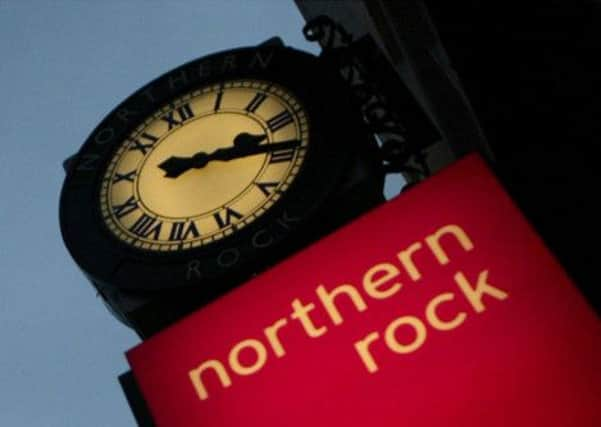COMMENT: Northern Rock bailout | Swip


Anxious queues of depositors outside the branches of Northern Rock in late 2007 were the first signs that a massive financial crisis was upon us. Savers had heard that it had sought and received liquidity support from the Bank of England.
What ought to have been reassuring news triggered panic. Shares in Northern Rock, a popular widely-held share and an FTSE-100 constituent, collapsed by 90 per cent. Two bids to take over the bank proved unsuccessful. The business was nationalised in February the following year, and the shareholders received not a penny in compensation.
Advertisement
Hide AdAdvertisement
Hide AdWhy rake over these cold ashes now? In a letter to the Financial Times, the economist Professor Tim Congdon raises searching questions about the sequence of events – then and subsequently – to suggest that the bank’s shareholders were unjustly treated.
Northern Rock has since proved to be a nice little earner for the government. Earlier this month, in a barely reported item, Northern Rock Asset Management, the remnant business, announced impressive results. Underlying profits in the 15 months to 31 March were £1.16 billion, up from £876 million in the year to end December 2012 and £790m the previous year. Indeed, in the last 30 months it has achieved profits of almost £3bn.
Bear in mind that these are figures relating to what was loosely labelled the so-called “bad bank” part of the original Northern Rock business. The “good” part, Prof Congdon reminds us, was sold to Virgin Money in late 2011 for £747m. Thus, almost £4bn of profits has accrued to the government, with the prospect of yet more billions in due course. Prof Congdon suggests that the £5bn stock market valuation of Northern Rock not long before it collapsed was not, contrary to subsequent comment, a massive over-valuation after all. He, together with other shareholders, tried to make the case for compensation at the time. These pleas were unsuccessful.
Shareholders, he argues, made two errors. First, “they did not foresee that UK officialdom would misinterpret illiquidity (a problem in funding assets) as insolvency (an excess of liabilities over assets).
“Second, they did not expect the Bank of England to repudiate its traditional role of being an efficient and pre-emptive lender of last resort… That role was to provide finance – at a penalty rate for as long as necessary – to solvent banks that had complied with regulations”.
Prof Congdon may usefully have added the perverse effect of public disclosure of Bank of England assistance. Prior to the 2007 crisis, Bank assistance of this type was opaque and discreet. Many companies were helped through the operation of the Bank of England “lifeboat” in 1980-83 where publication of emergency care and assistance would have triggered the very panic that scuppered Northern Rock. The much-hailed virtue of transparency in today’s corporate governance can come at a horrendous price.
Prof Congdon’s letter is of value in turning a questioning spotlight on the instant wisdom of the time that Northern Rock fell victim to a crisis of solvency, not liquidity. That was the mantra widely taken up. A more reflective history of events might see this assessment to be altogether too glib.
As for Northern Rock shareholders, it will do little to lighten the losses they suffered. Many were shareholders of modest means who had much of their life savings tied up in Northern Rock, split between what seemed at the time to be rock-solid and minimum-risk deposit accounts, and their share allocation when it demutualised. And, like RBS and HBOS, many staff had built up significant sums through employee share schemes – only to see these nest-eggs decimated.
Advertisement
Hide AdAdvertisement
Hide AdHuge legal actions still hang over RBS, particularly relating to the £12bn rights issue in 2008, just before the bank had to be rescued by the government. The widespread coverage of bank crises at the time was that shareholders did not merit any consideration and almost deserved to be wiped out. But when the enforced owner (the government) goes on to reap huge rewards, has justice really been served?
l Not all that long ago Scottish Widows Investment Partnership (Swip) had a significant presence in fund management with stewardship of £138bn of assets. But at a stroke new owner Aberdeen Asset Management has dispensed with the Swip teams and transferred all the former Swip active equity funds and mandates to Aberdeen management. Some may mourn the shrinkage of diversity but Swip was never able, at least in terms of consistent performance, to build a winning brand. Brutal though its disappearance may be, few will mourn.